What could work in employing persons with disabilities in formal sector?
Fuelling Opportunities to end Unemployment for Nepalese with Disabilities (FOUND) is an initiative of The Leprosy Mission Nepal which works in rural areas of Nepal to assist people with disabilities find work. Disabled people often experience stigma that means they are ignored as part of the recruitment process. As part of TLM’s commitment to zero discrimination, we want to change this, and to see more disabled people welcomed in the world of work. The FOUND project challenges the assumptions of employers about disabled people, and works through networks of local community and disabled people networks to change attitudes and provide work.
FOUND engages people with disabilities in workshops to help them find work and builds networks with local employers to help them understand these young peoples’ potential as employees. This might involve providing health support for disabled young people in their existing workplaces, but often it is about challenging the assumptions of employers – who can often think that the costs of providing support for disabled workers is too much of a barrier.
The project started it works in Nepal from 2019 and wrapped up its four year run in 2023. In its time, the project helped more than 3,000 people receive formal employment and/or start self-sustaining businesses. So, what works in employing persons with disabilities in formal sector?
Recommendation for employers:
- While striving to become disability inclusive employers, it is imperative that the leaders and the talent advisors of the company understands the concept of disability, common barriers for persons with disabilities, the need of inclusive workplace, accessibility, and reasonable accommodation to create a welcoming work environment.
- Provide orientation to all staff on the concept of disability, common barriers for persons with disabilities, how to foster an inclusive work environment, ensuring accessibility, and implementing reasonable accommodation.
- Examine the various roles and responsibilities and determine which ones are ideally suited for individuals with specific types of disabilities. Given that the Nepalese private sector is dominated by small and medium-sized enterprises (SMEs), people with disabilities might find themselves working in enterprises where multitasking is required. While there may be many areas in which they can handle multiple tasks, persons with disabilities might struggle to meet expectations due to their specific impairments.
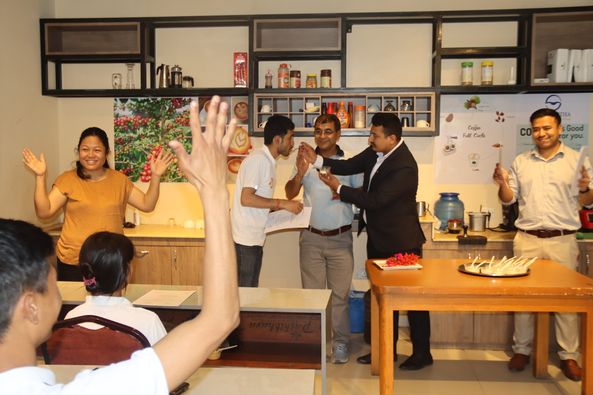
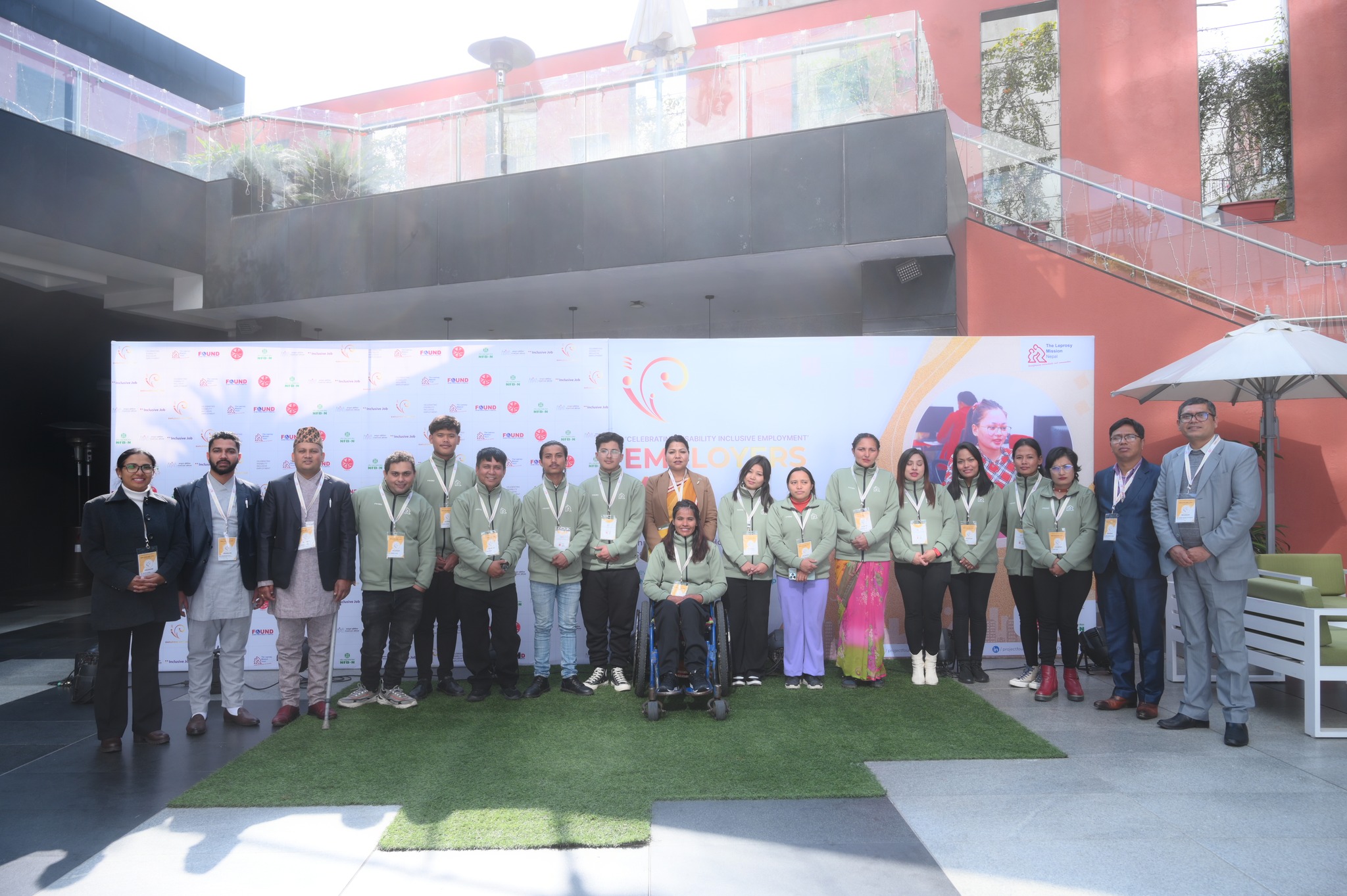
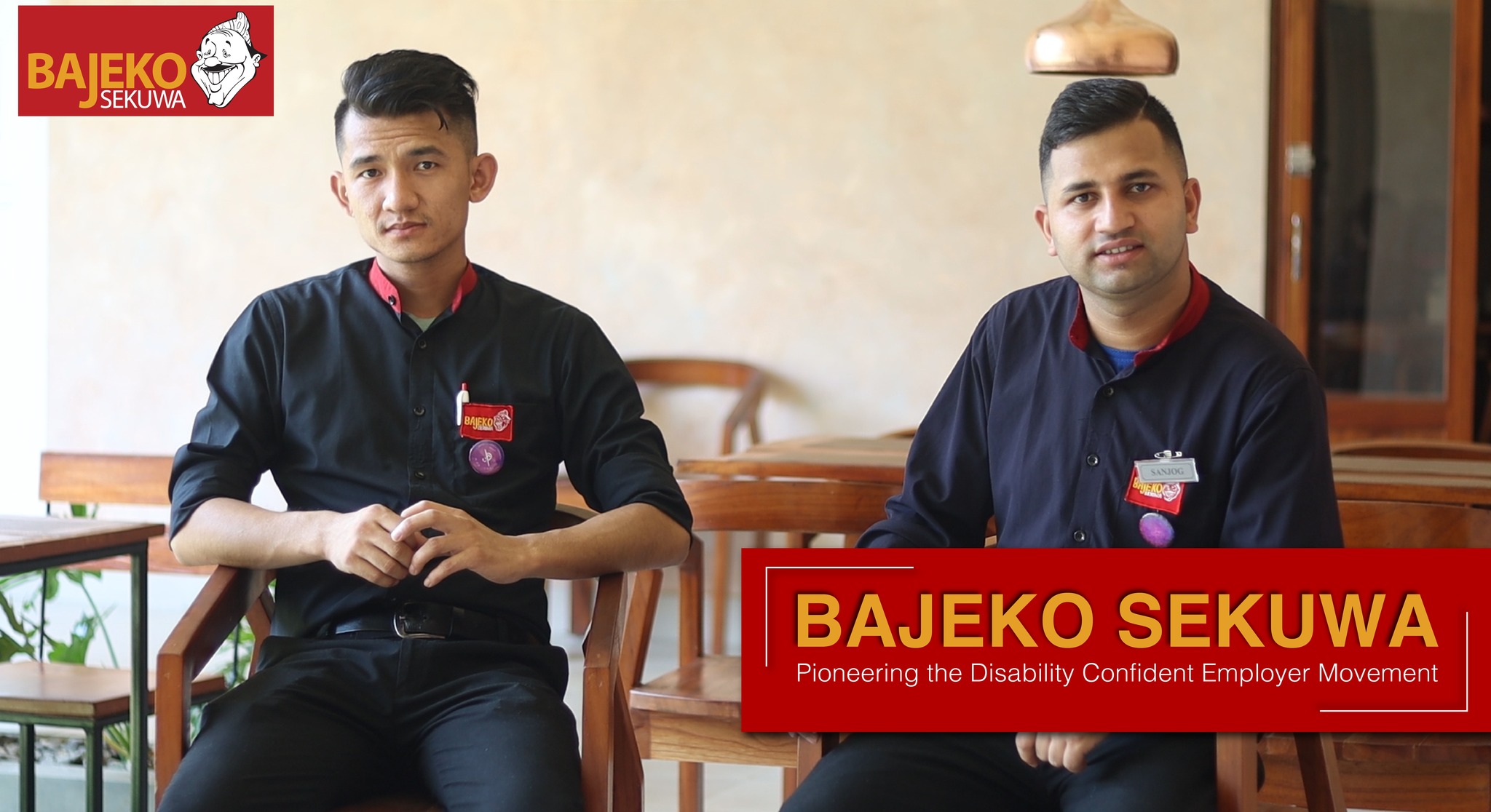
Recommendation to recruitment team:
- The organization should implement human resource planning and processes that prioritize disability inclusion. This includes ensuring that the recruitment and the HR team are knowledgeable about individuals with specific types of disabilities, their requirements, and how they can actively participate in all stages of recruitment.
- Make job advertisements, application processes, pathways, and interview rooms disability-inclusive to ensure equal opportunities for individuals with disabilities. Employers should develop a mechanism to identify disabled applicants and provide appropriate responses in case of rejection, aiming to prevent discouragement and despair in subsequent attempts.
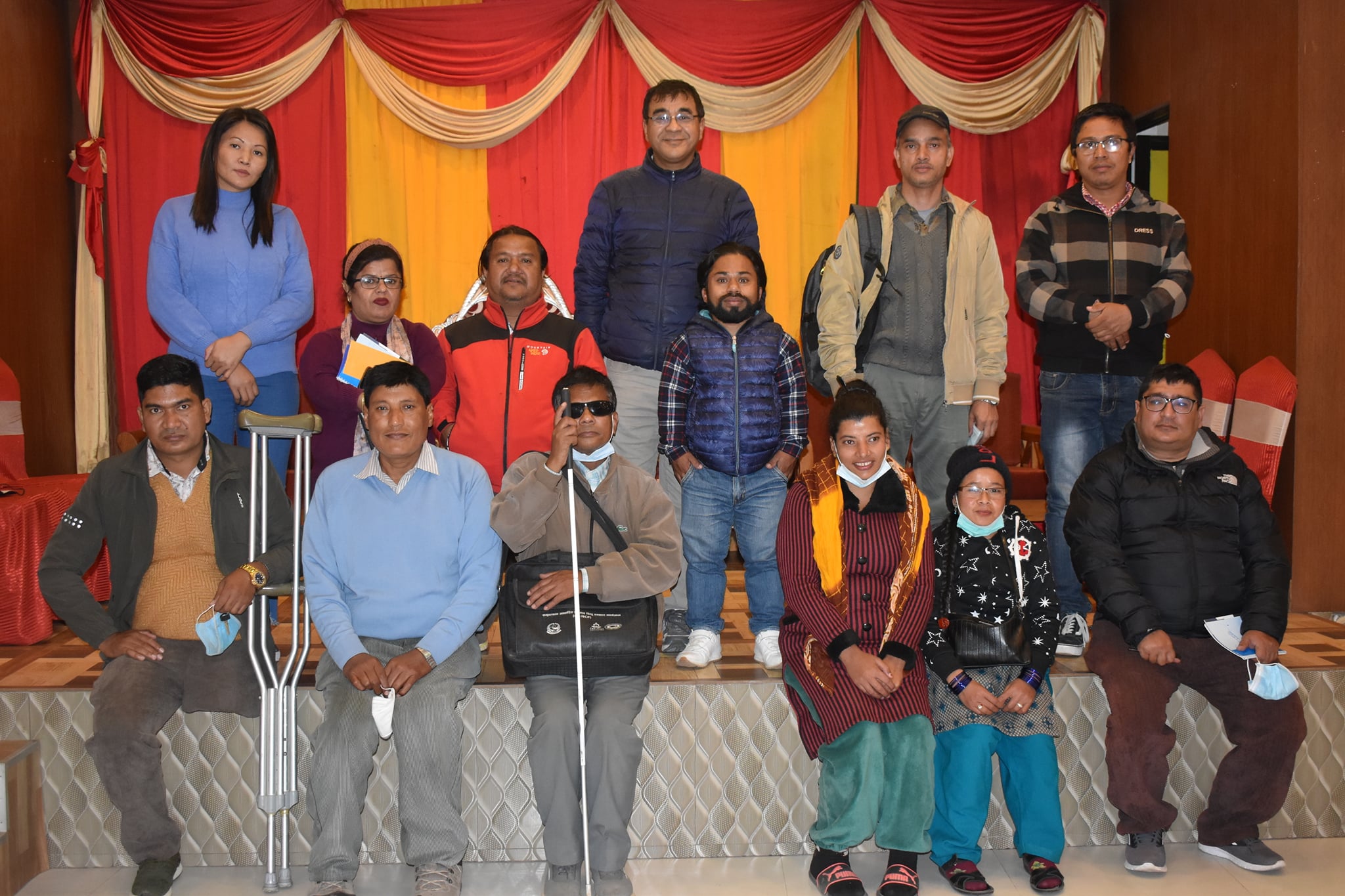
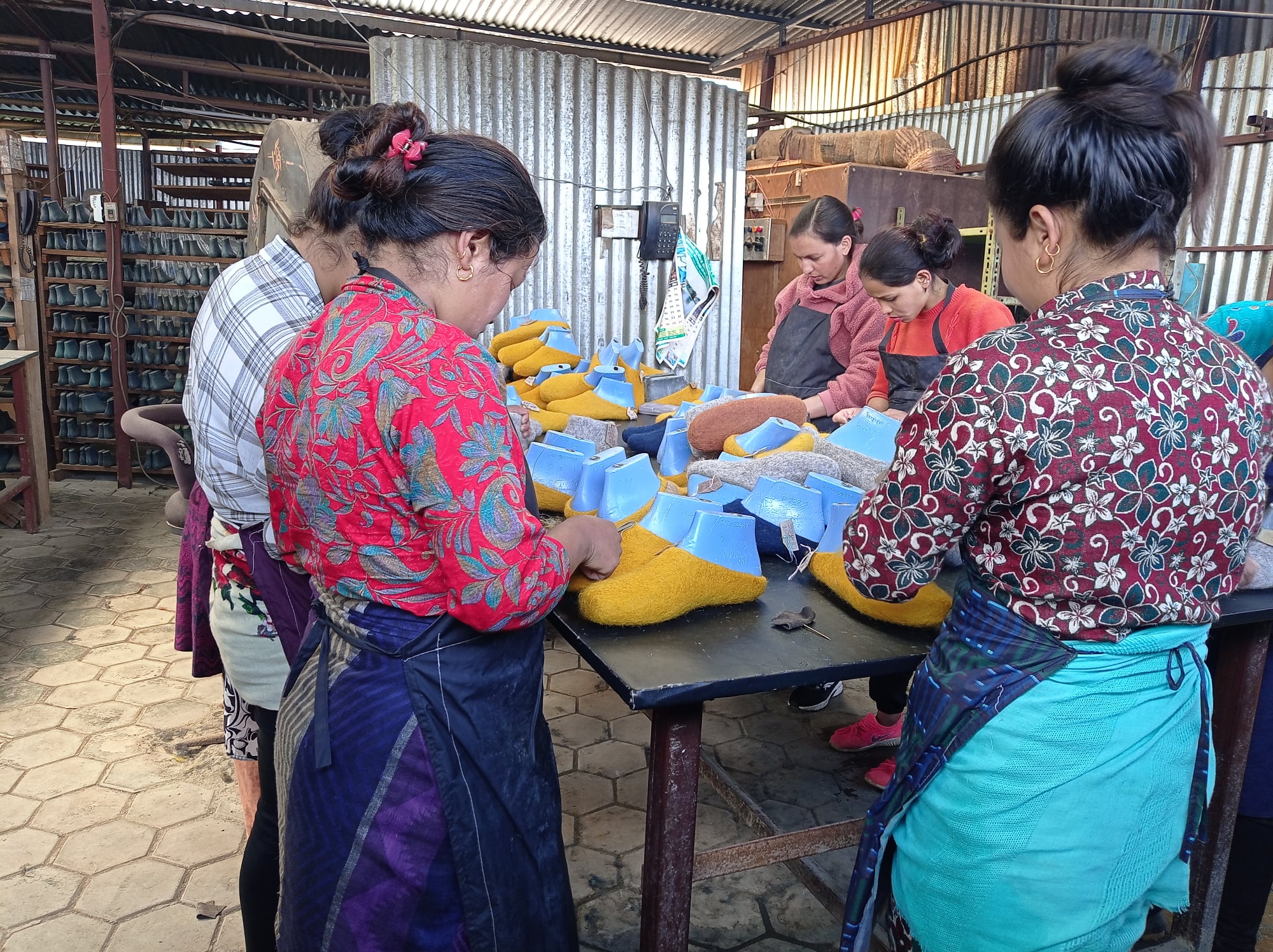
Recommendations for persons with disabilities:
- Enhance your skills and gather the necessary resources to craft an impressive and persuasive CV and job application that effectively showcases your abilities and convinces potential employers of your suitability for the position. By tailoring your CV and application to the specific context and requirements of the job application process, you can greatly increase your chances of being hired.
- Exhibit your learning attitude to employers during the interview process. Focus on your skills, qualifications, and experiences that make you a valuable candidate.
- Prior to an interview, invest time in researching employers to demonstrate your seriousness about the job and showcase your knowledge of the company. This preparation highlights your genuine interest and shows that you are well-prepared.
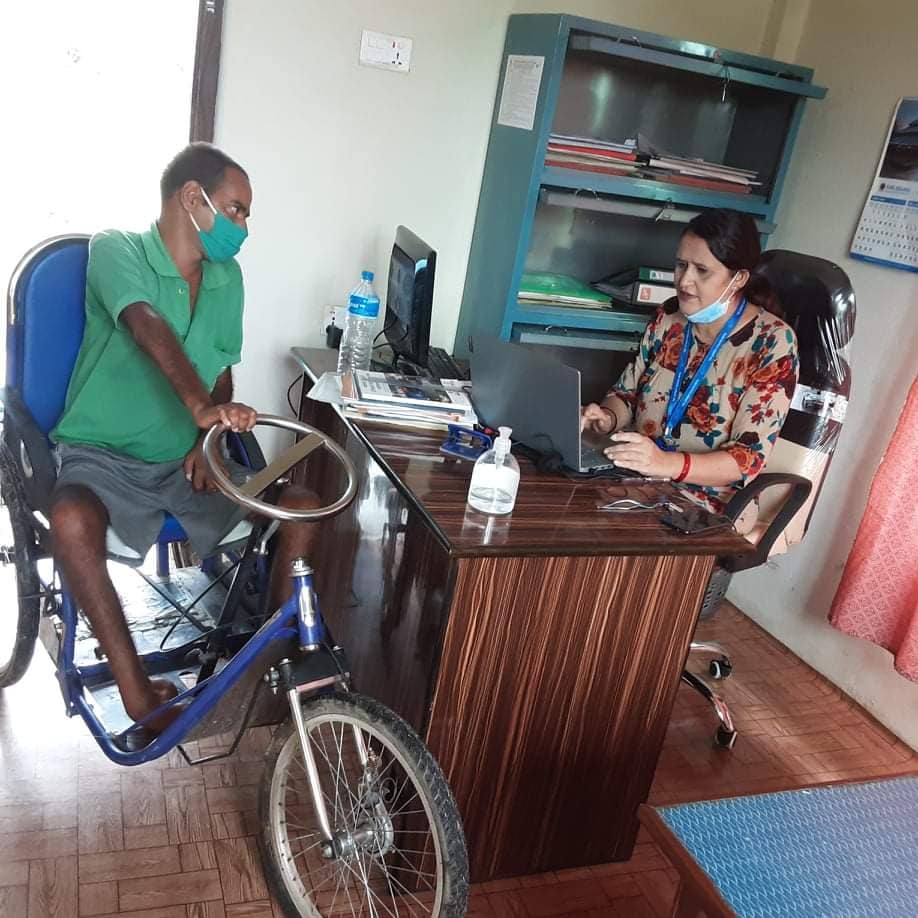
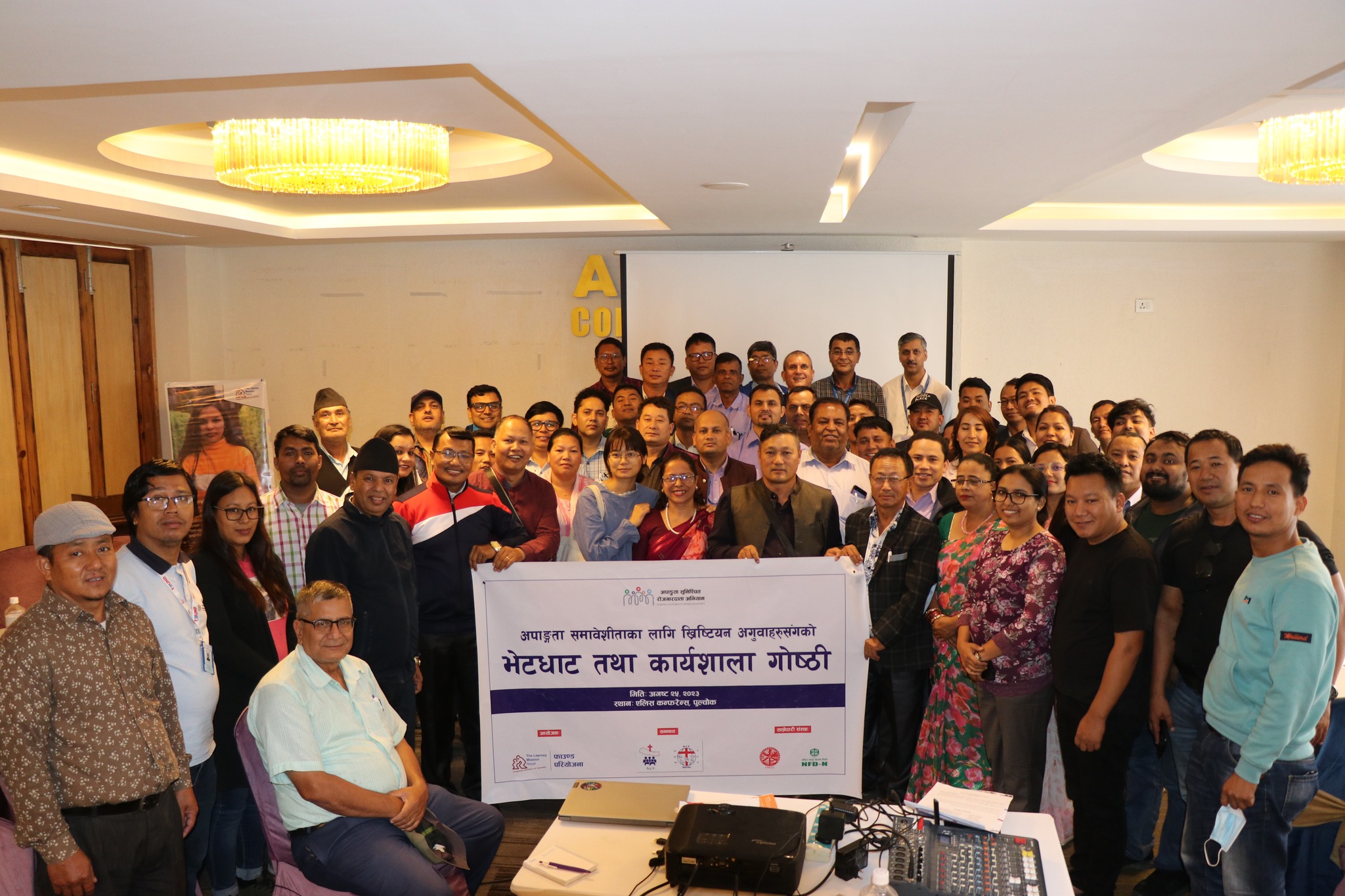
Recommendations for Disability Inclusive Employment project and HR/staffing companies:
- To ensure the long-term sustainability of persons with disabilities in employment, it is essential to engage in thorough job matching that aligns with the needs of the job market as well as the skills and interests of the individuals.
- Providing comprehensive career guidance, mentoring and emotional counseling for persons with disabilities is crucial to instill confidence in them before they engage with employers. This preparation helps them feel well-equipped and self-assured when interacting with potential employers.
- Provide orientation on the concept of disability, common barriers for persons with disabilities, how to foster an inclusive work environment, ensuring accessibility, and implementing reasonable accommodation to the leaders, placement experts, talent managers and all other staffs.

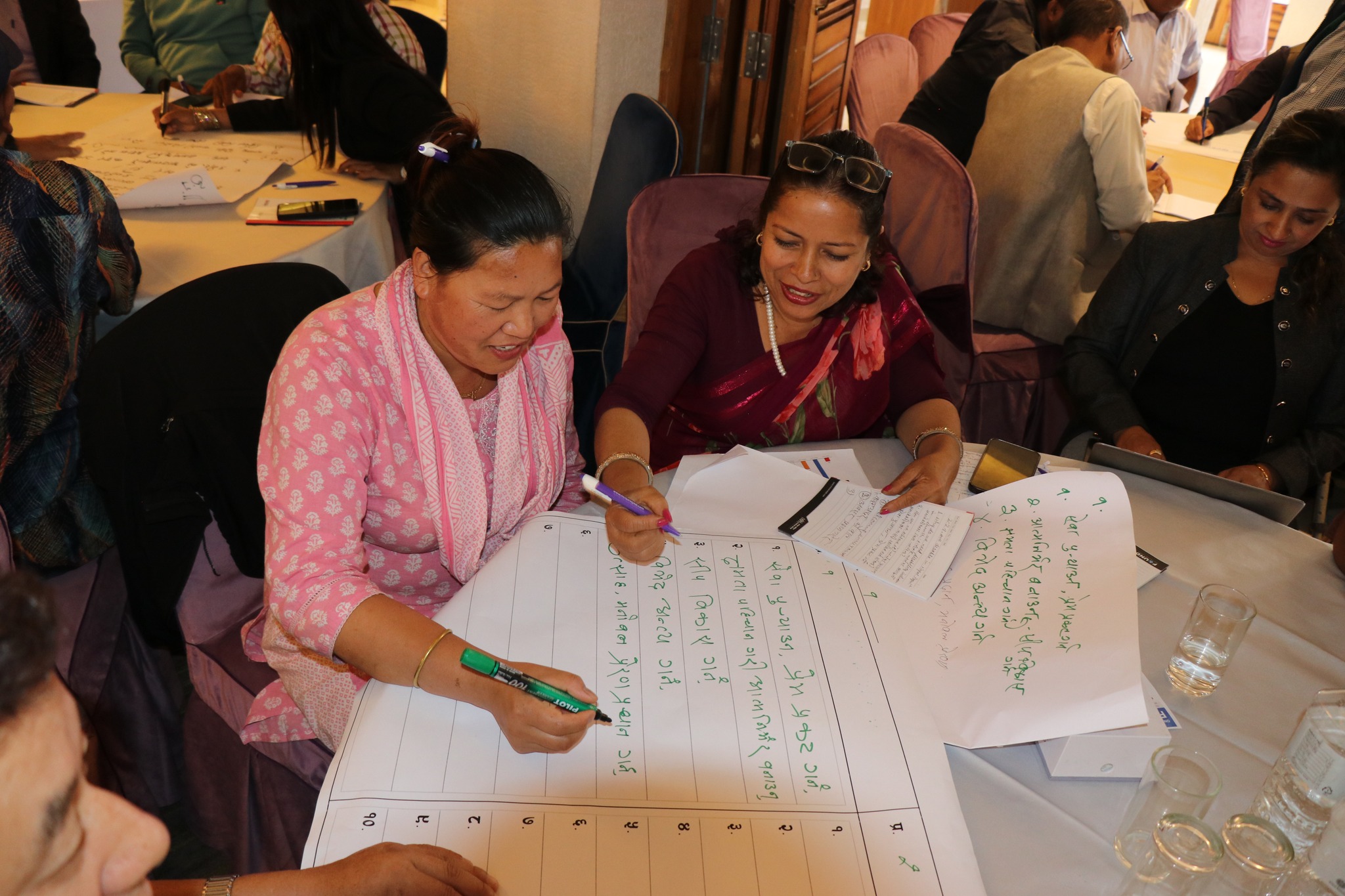
Recommendations for Central governments:
Ministry of Labour, Employment and Social Security: Develop and disseminate essential directives focused on the implementation of the rights of persons with disabilities, with a particular emphasis on the employment sector.
Ministry of Women, Children and Senior Citizen:
-
- Effectively monitor or initiate monitoring mechanism to monitor the activities of various committees formed under the Right of Person with Disability Act.
- Efforts should be made to urge the Ministry of Labour, Employment, and Social Security to develop and disseminate essential directives focused on the implementation of the rights of persons with disabilities, with a particular emphasis on the employment sector.
Department of Labour and Occupational Safety:
-
- Effectively implement the Labour Audit mechanism as it is extended arm of the GoN’s monitoring tool. Labour Audit should also be given importance and make it mandatory for renewal of the registration and tax clearance. This will catalyse employers as well employee to comply with the laws.

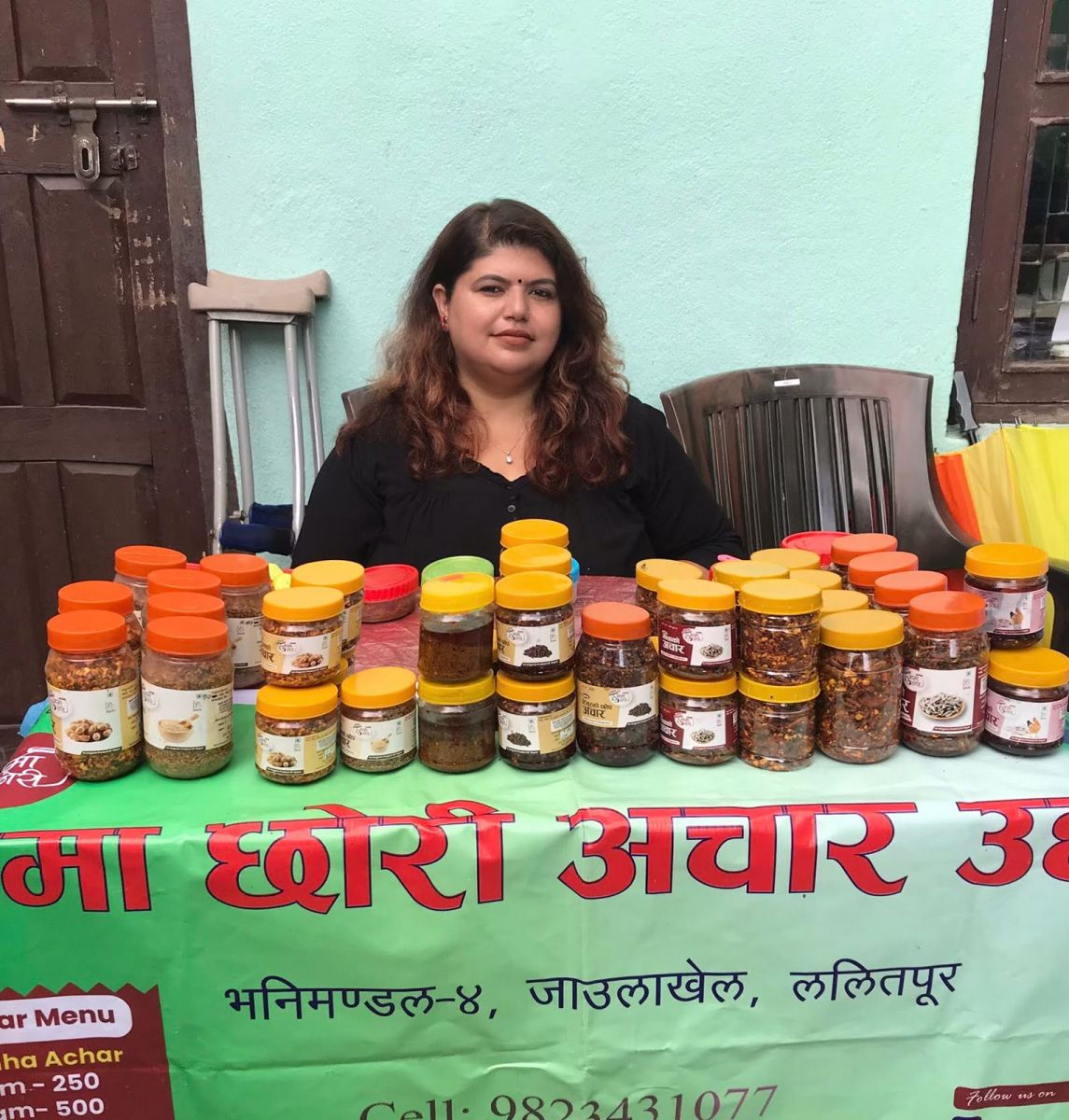
Recommendations for local governments
- Maintain data of the persons with disabilities having different cards (Red, Blue, Yellow, and White) based on the disability severity.
- There is a significant requirement for inclusive infrastructure in both existing and newly built public and private urban spaces. It is crucial to guarantee that newly constructed infrastructure strictly adheres to accessibility specifications, incorporating universal design principles.
- Due to the lack of accessible educational curriculum and infrastructure in schools, individuals with different disabilities are being deprived of access to education in crucial areas necessary for the labor market. Local government can intervene by addressing curriculum and infrastructure accessibility at the school level.
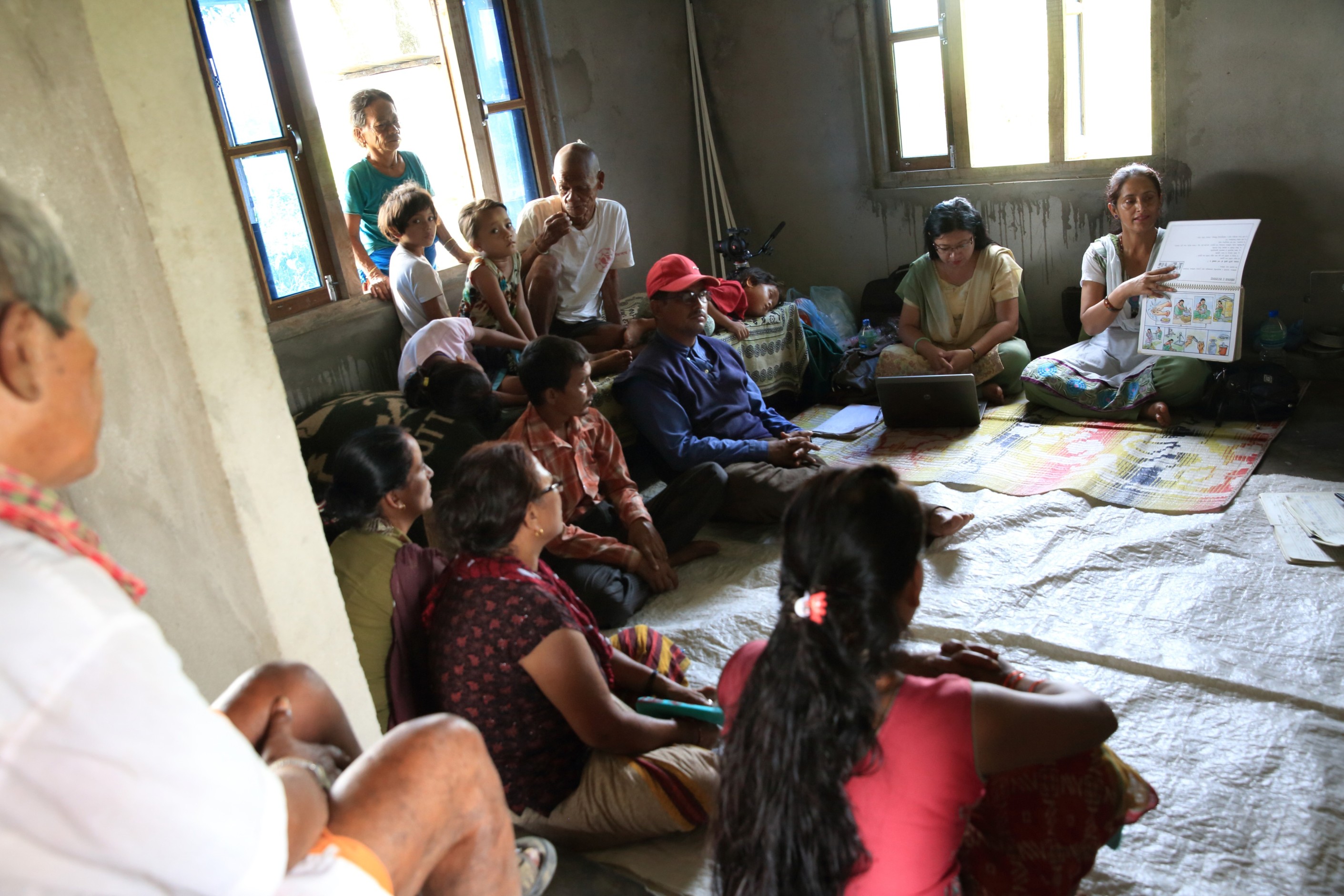
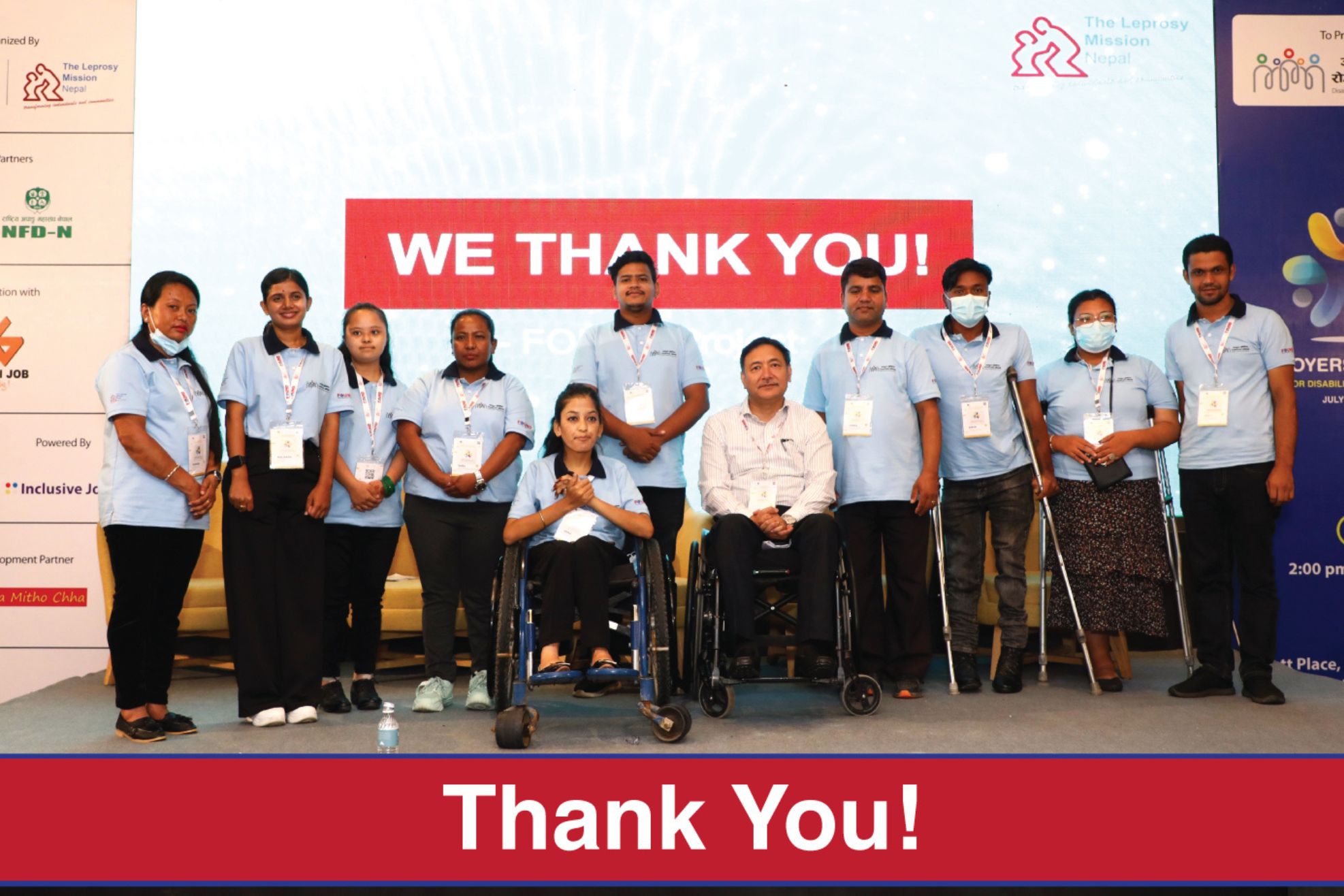
*The creation of this blog post was led by Chiranjivi Sharma and Pratigya Rijal.
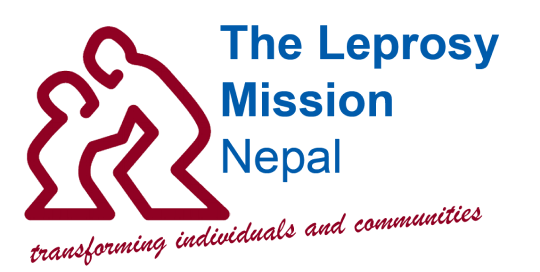
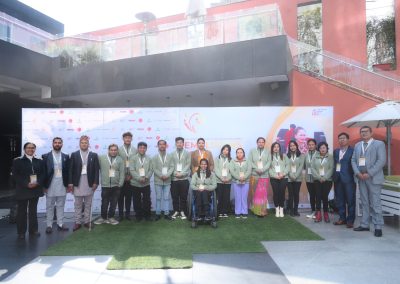
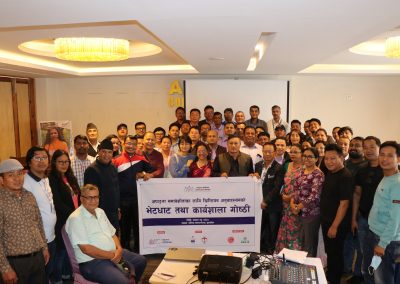
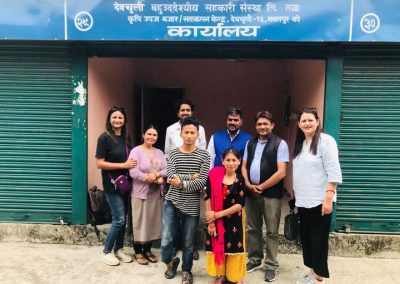
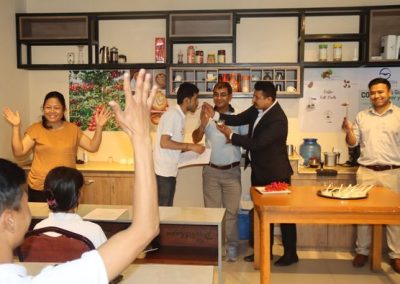
Recent Comments